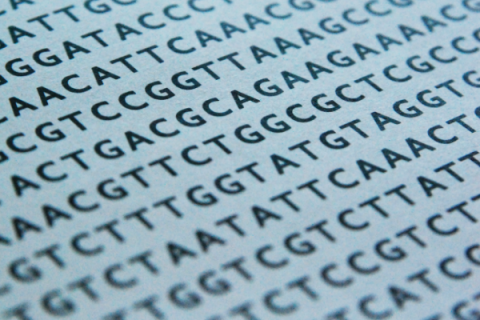
The African Animal Breeding Network (AABNet) is offering a free four week training course to develop the existing knowledge of animal breeding educators and researchers working in Africa
This course, which is supported by the Centre for Tropical Livestock Genetics and Health (CTLGH) and others, is designed for those who need additional skills in quantitative genetics, selection, breeding strategies and genomics to support their ongoing teaching and research.
Professionals from the animal breeding industry, academia, government agencies, research organizations, farmer organizations, educators and graduate students in Africa are all encouraged to apply.
With an expected increase in population, demand and consumption of animal protein is likely to increase in the future. Genetic improvement of farm animals and the successful implementation of animal breeding programmes in Africa is vital in order to improve overall productivity and also maintain genetic diversity for future generations.
Training Course Overview
Participants will attend an intensive four-week training course (14-Feb – 11 March 2022) at Egerton University in Kenya. All expenses including flight and accommodation will be covered for the 20-25 selected participants.
The course will comprise of lectures and hands-on practical training in population genetics, mixed linear models, variance components, estimation of genome breeding values, genome organization, GWAS, selection principles, genomic selection among other topics. Participants will also be taught practical programming skills and the use of current software and will be assigned to small groups to design a genetic improvement strategy.
The training will be delivered by leading experts affiliated with COELIB-Egerton, the Centre for Tropical Livestock Genetics and Health (CTLGH), Emerge Centre for Innovation-Africa, University of Hohenheim, Lilongwe University of Agriculture and Natural Resources (LUANAR), International Livestock Research Institute (ILRI), University of Georgia (UGA). Other institutions will train and mentor selected participants in animal quantitative genetics and genomics.
Eligibility
This course is designed for those who wish to build on their existing skills in quantitative genetics, selection, animal breeding strategies and genomics to support their ongoing teaching and research. Priority will be given to candidates who have field animal breeding data that they can analyse as part of their training. Candidates must be currently working in this field in Africa. Female candidates and early career academics/researchers are strongly encouraged to apply.
Course Requirements
This training will be delivered face to face. Candidates must be available to travel to Egerton University in Kenya and attend the entire four week residential workshop in person. Virtual participation can be arranged for any participant who is unable to travel due to COVID restrictions.
All participants must have their own laptop with the following minimum systems specifications in order to participate in the training: Windows 8 (preferably Windows 10), 64-bits, 4GB of Ram (preferably 8GB of Ram). Basic understanding of English and some quantitative skills are also required.
Application Details
All applications must include:
- One-page covering letter explaining why you would benefit from this training
- One page CV highlighting any experience or prior knowledge you may have in pedigreed data and/or extensive data for modeling
- Recommendation or nomination letter from head of department or institution head
Upload your application to the AABNet website. Applications close at midnight on 31 December 2021. Successful applicants will be notified by 10 January, 2022
The African Animal Breeding Network (AABNet) was established in 2020 to focus on the application of tools, technologies and innovations to drive animal breeding in support of sustainable livestock genetic improvement in Africa. This training will support AABNet’s core objective to develop capacity in animal breeding in Africa.
This training course is a joint initiative of the Centre for Tropical Livestock Genetics and Health (CTLGH, with financial support from the UKRI/BBSRC), the African Dairy Genetic Gains (ADGG)/International Livestock Research Institute (ILRI), and the Centre of Excellence for livestock, innovation and business (COELIB at Egerton University).
